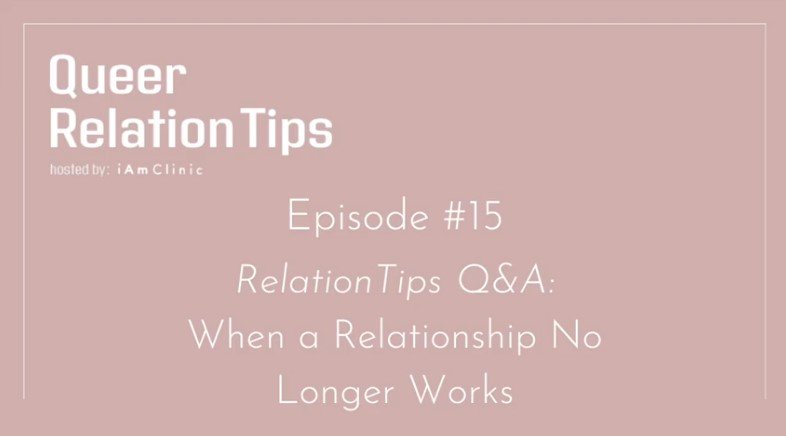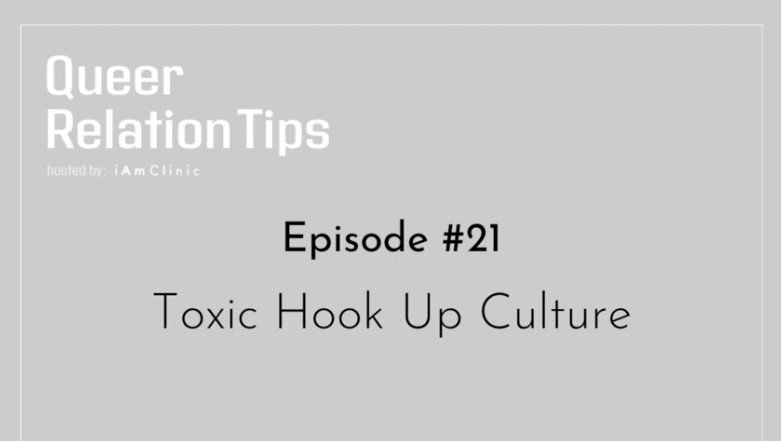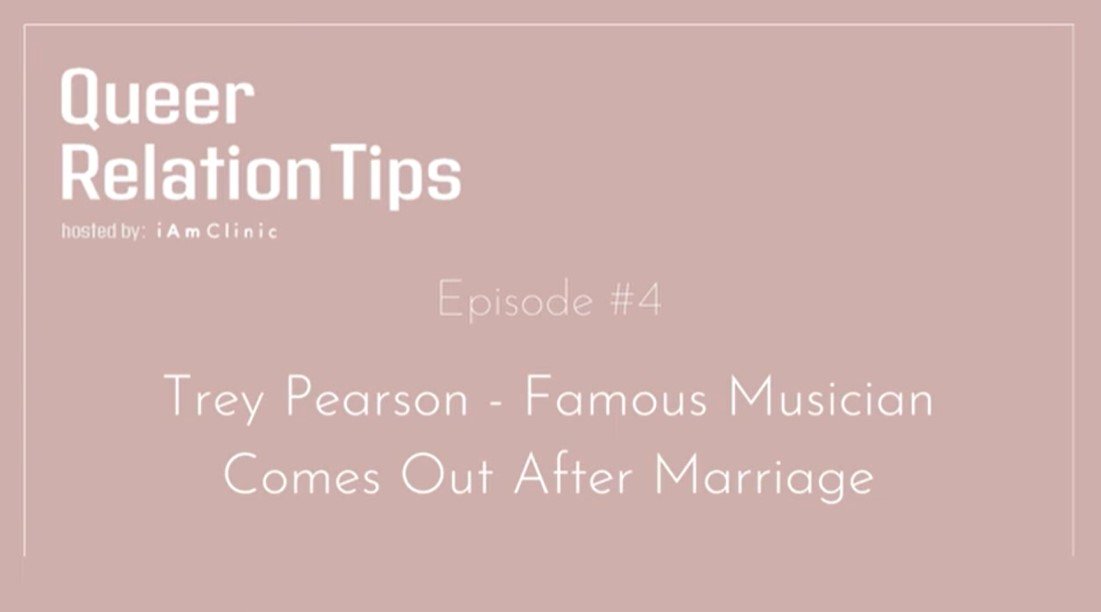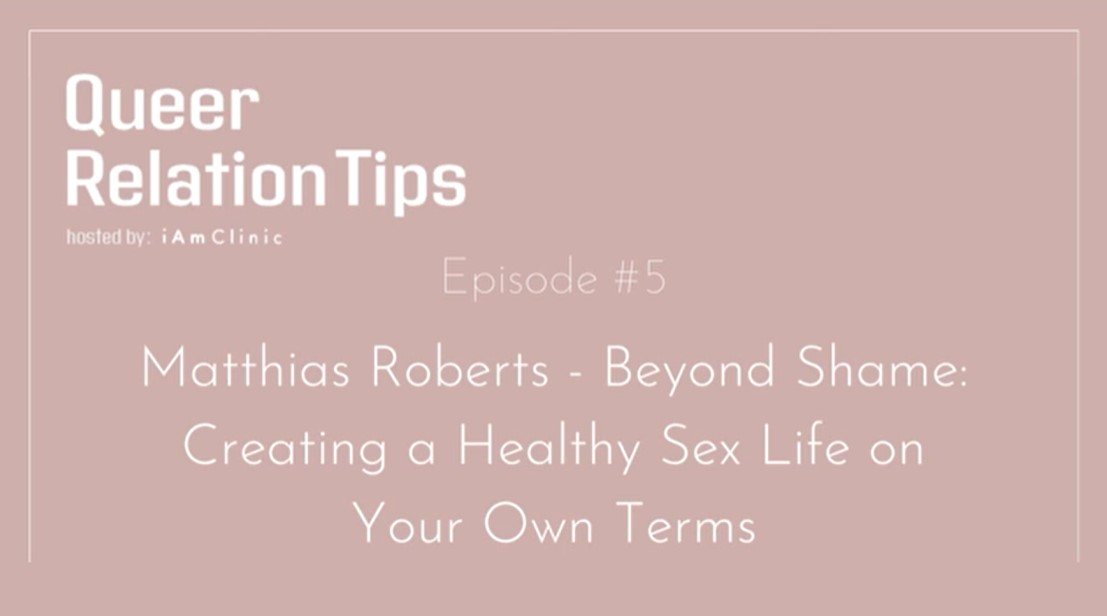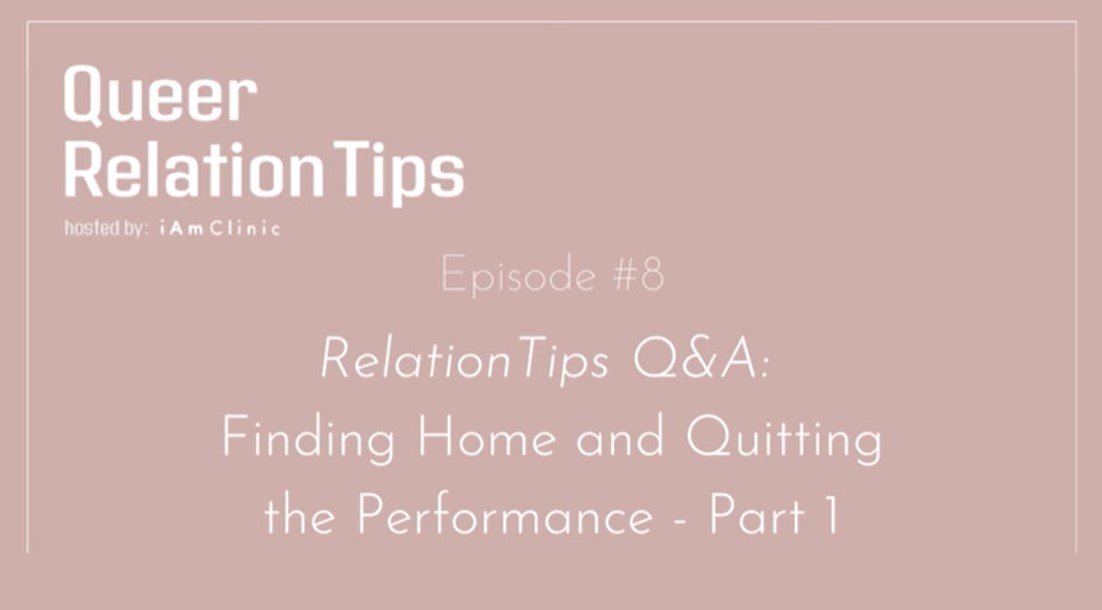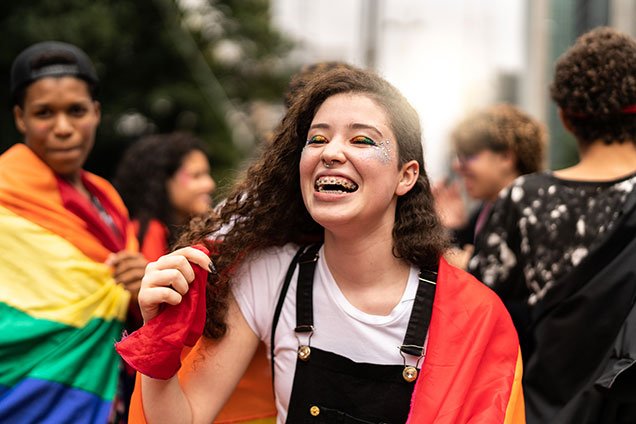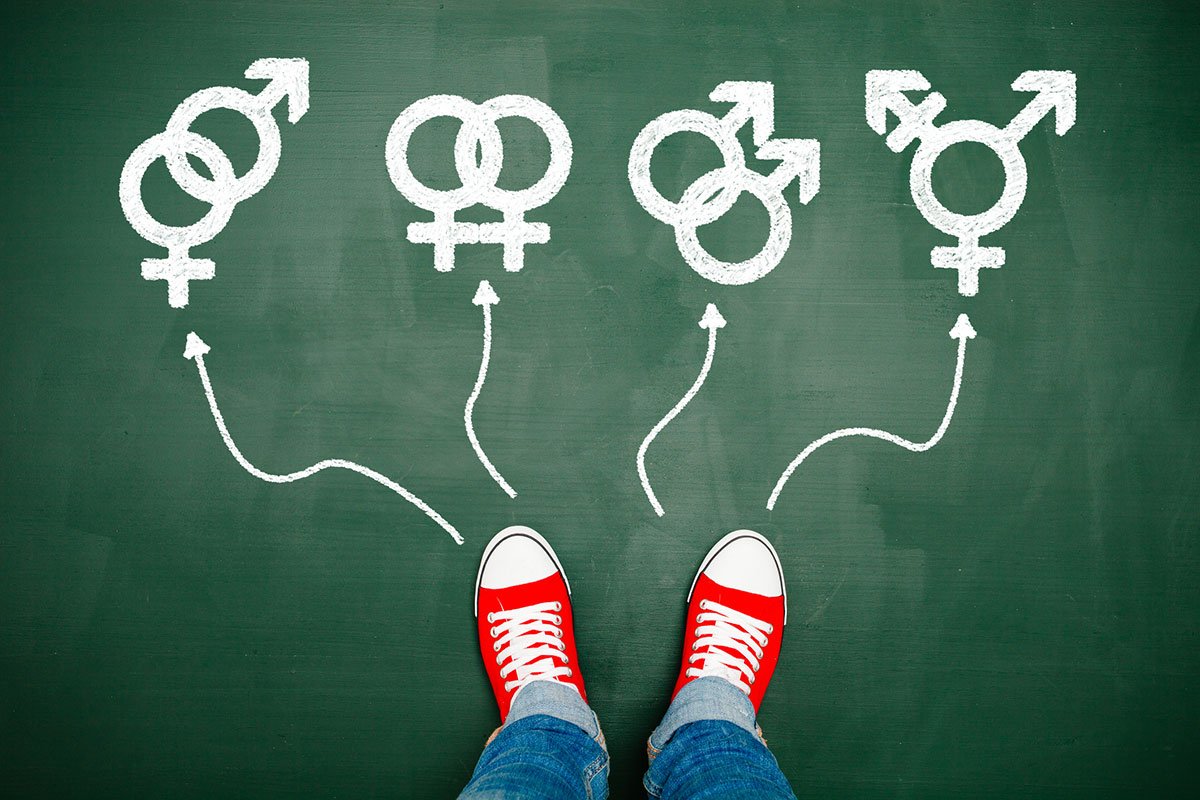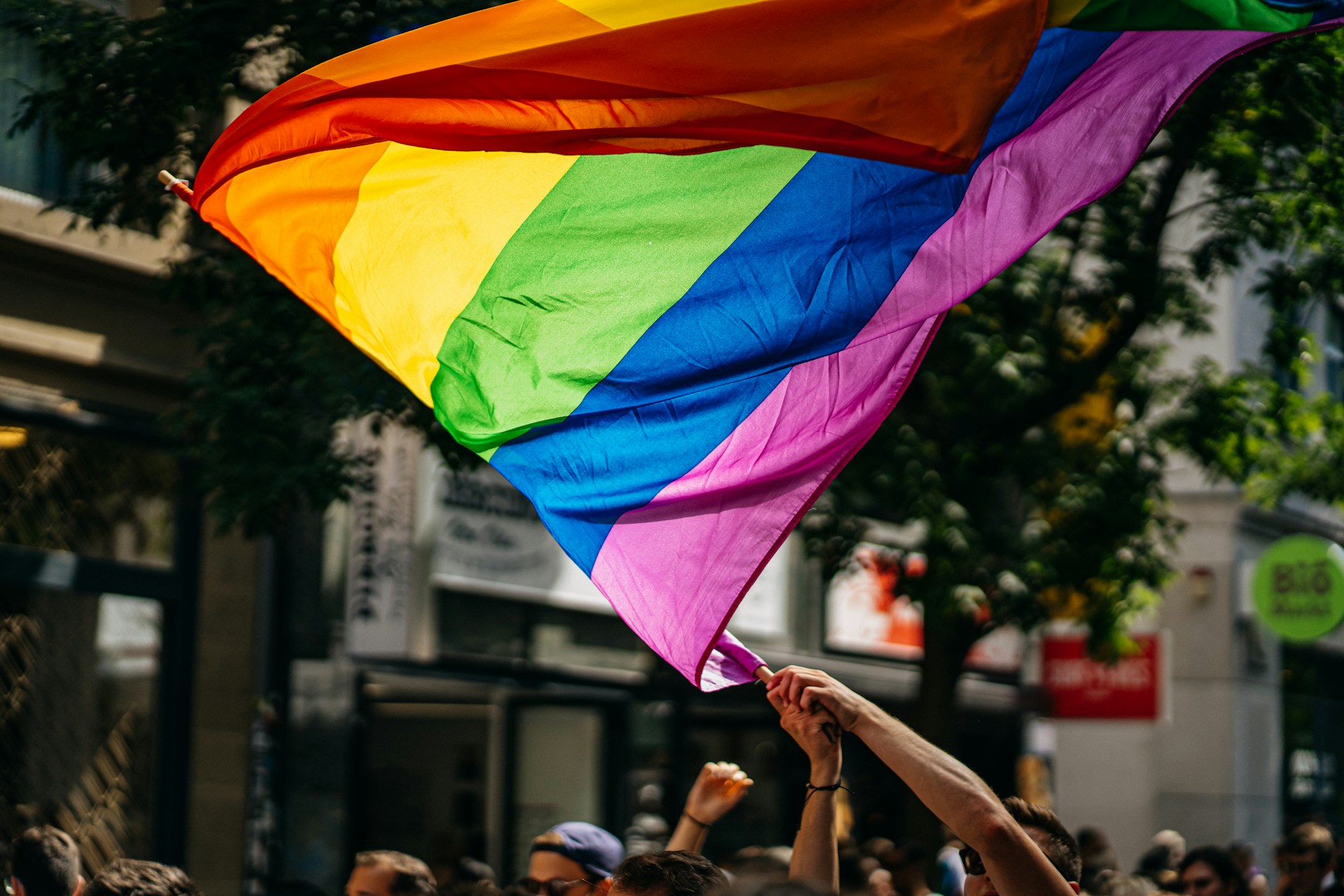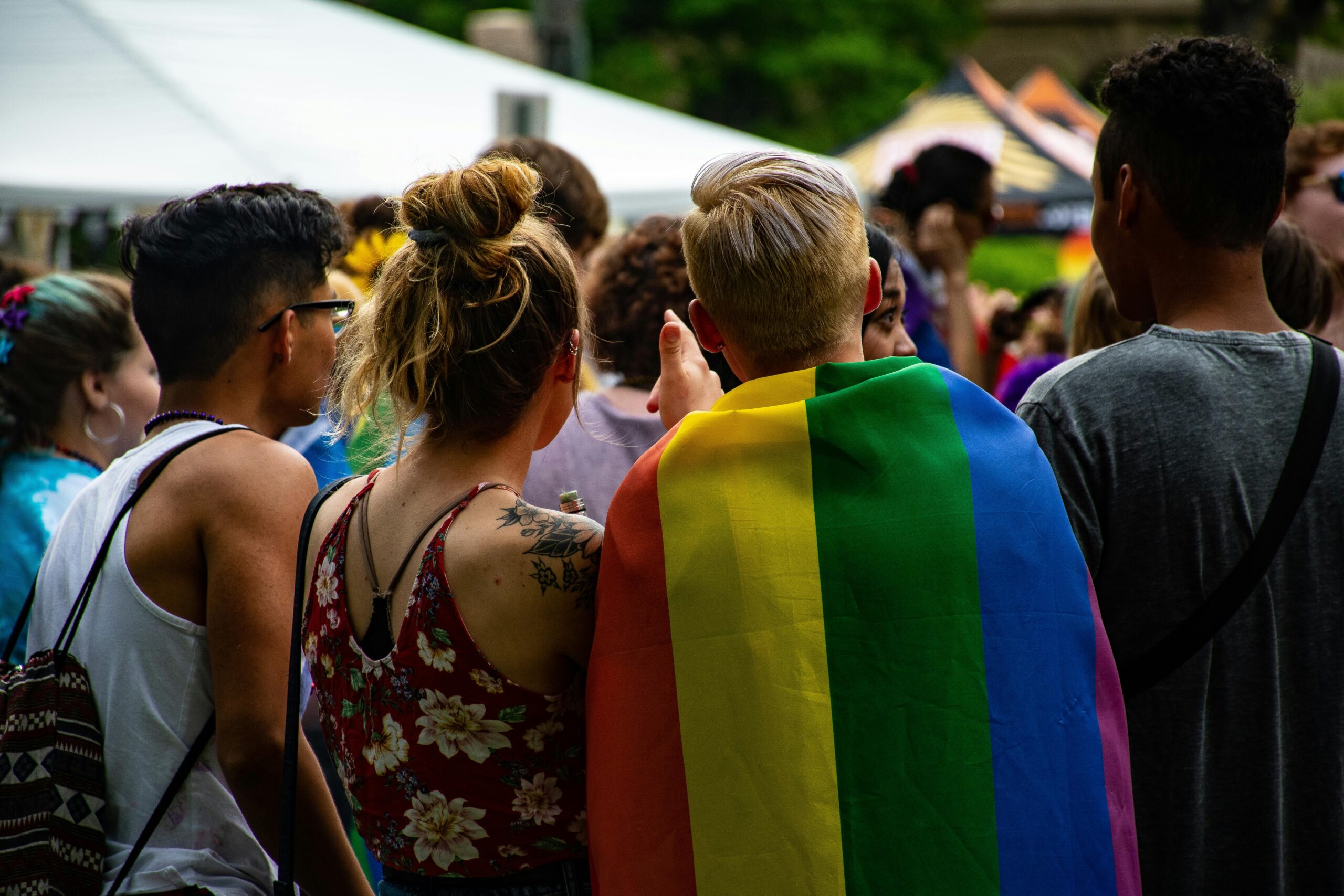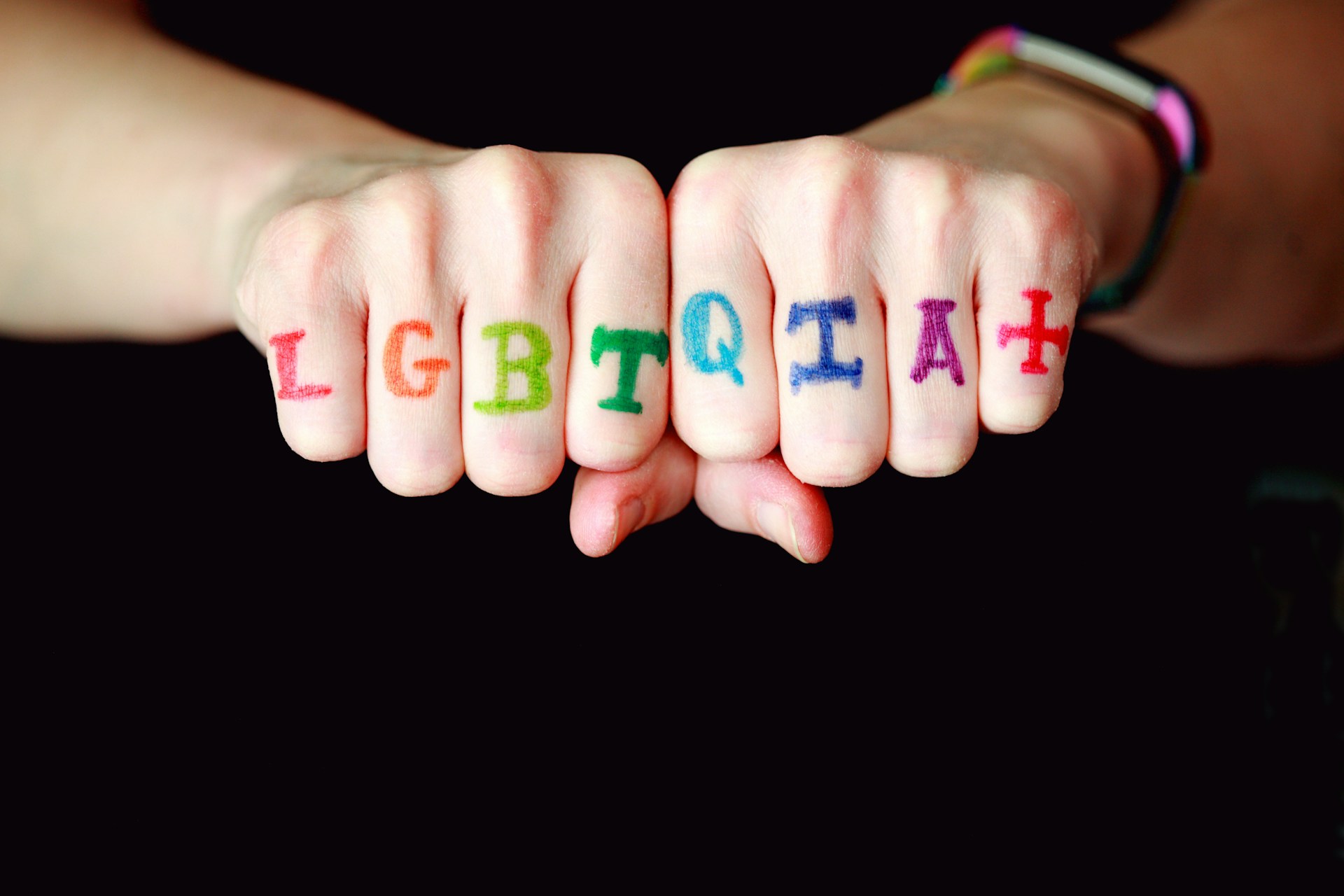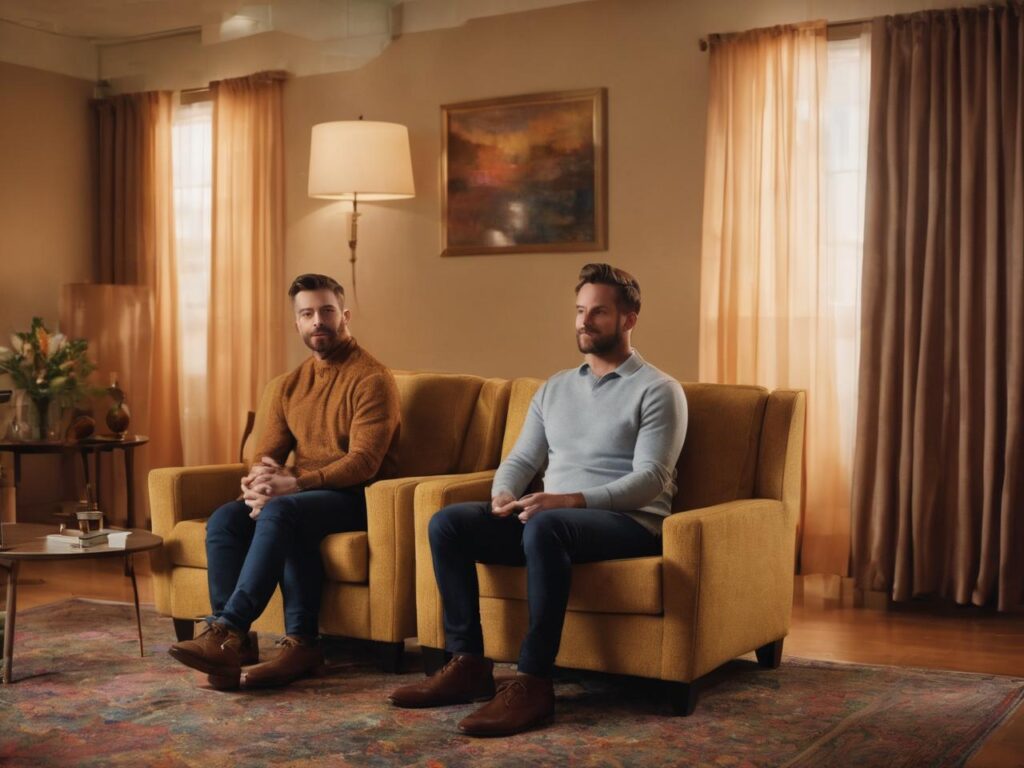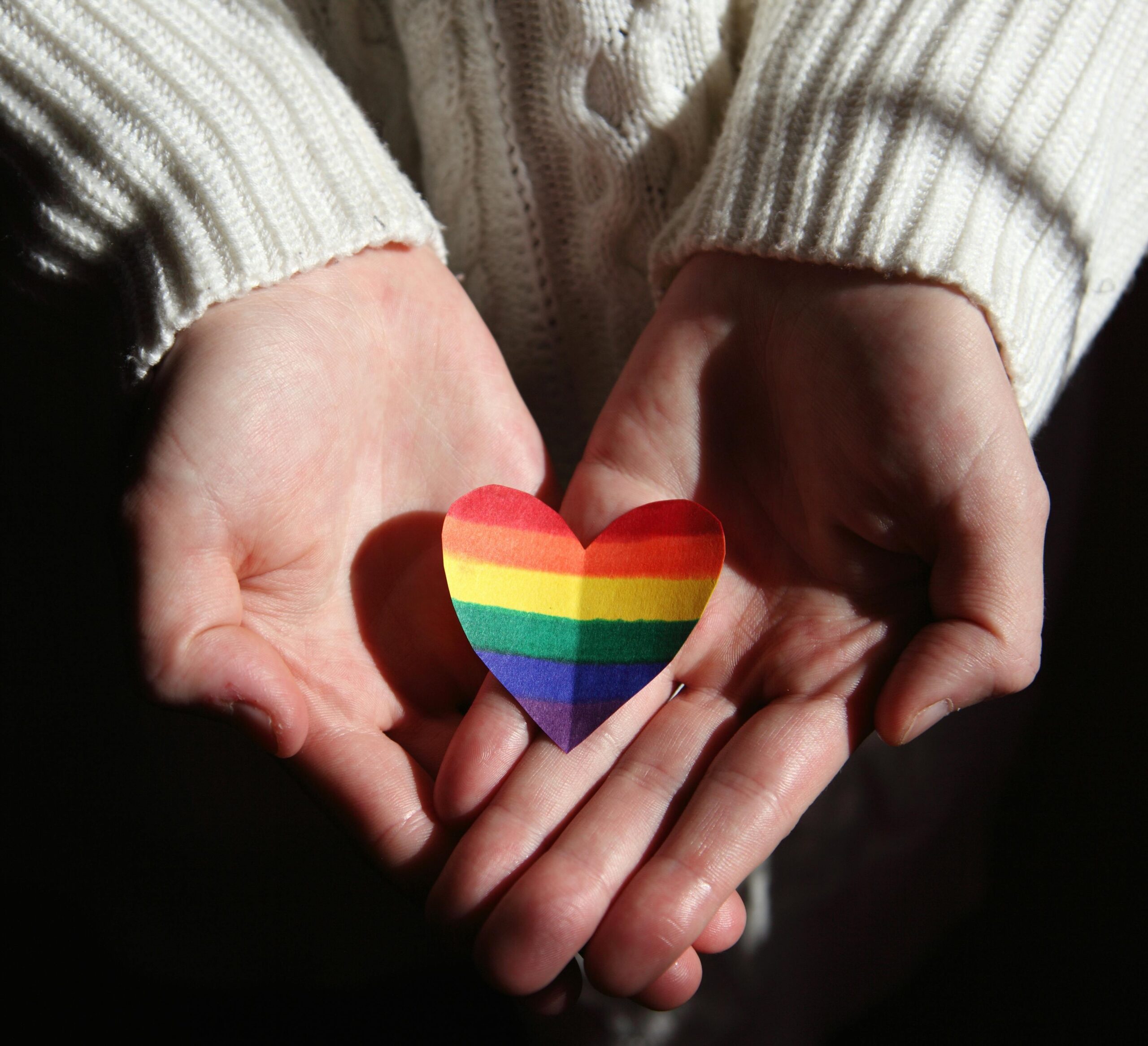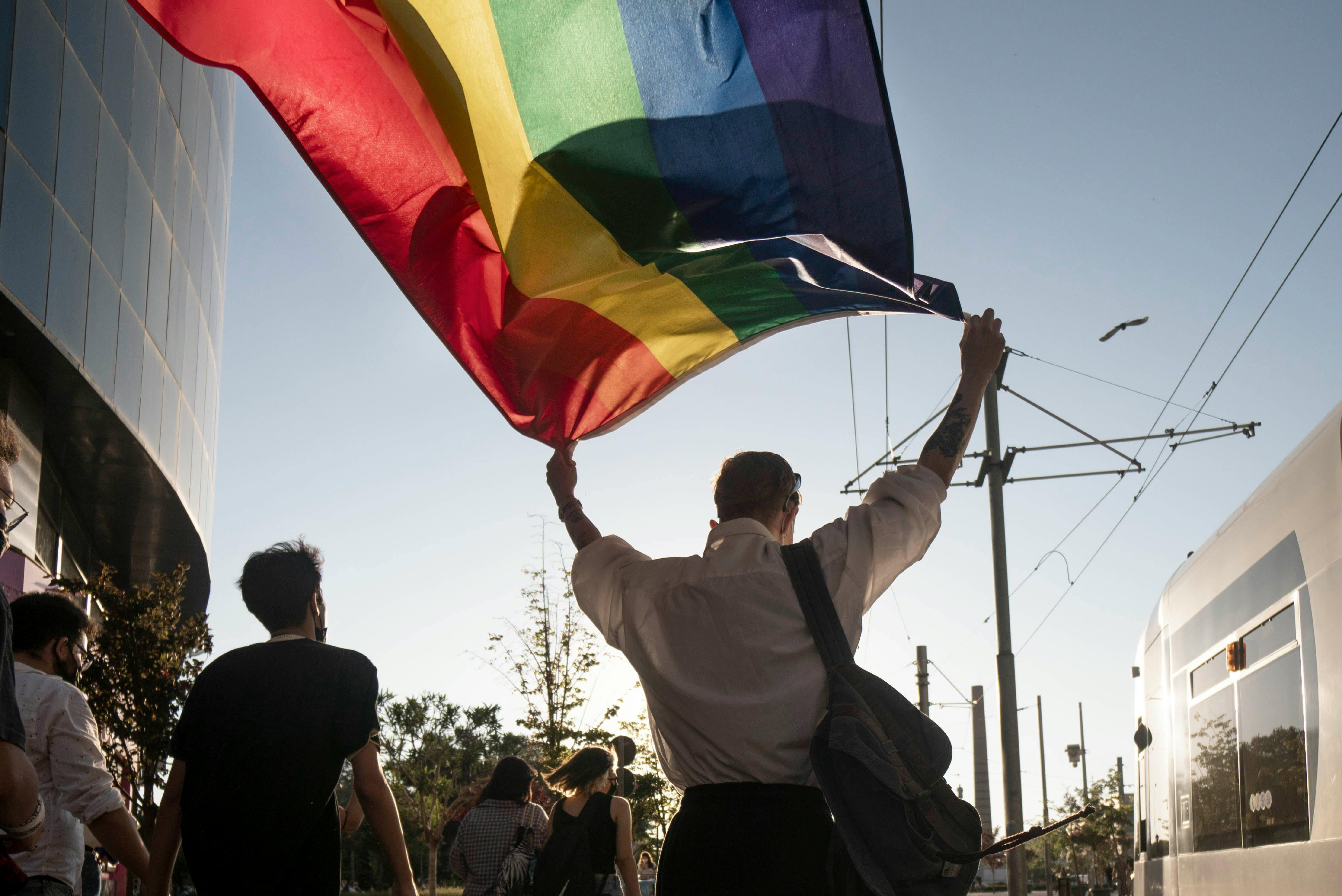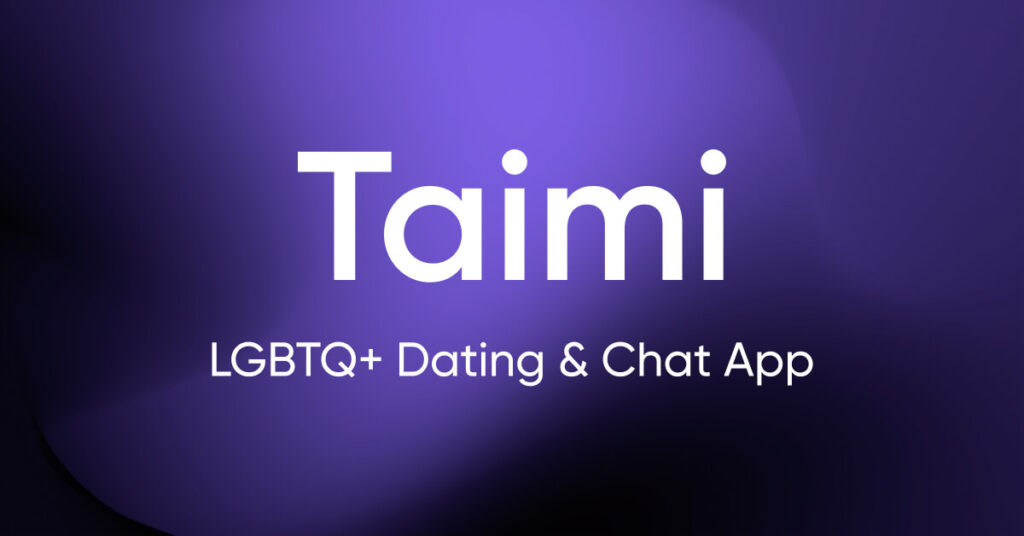Episode Summary
Host Isaac Archuleta sits with a guest who brought a great conundrum to the show, one that many queer people face: how do we live as one integrated being?
Being a queer person in a professional space, a spiritual person in a gay setting, or even a woman in a man-centered world, integrating all parts of who we are can be quiet the riddle, and the remedy might just surprise you.
Some of the episodes in our line up are what we call, RelationTips Q&A’s, a safe space for everyday folks to come on the show and talk with a therapist about a problem or topic they are struggling with.
These episodes are intended to highlight queer stories with the hope that others can relate and gain insight into their own journeys.
Guests on these episodes bring vulnerability into the space that allows for a deep, emotional exploration of areas that hit deeply for many queer folks.
For information about how to become a guest, visit us at iAmClinic.org.
Falling In Love With Authenticity: A Journey Towards Belonging and Home
In this modern world, where self-expression is encouraged and celebrated, it can be challenging to navigate the complexities of identity and belonging. For members of the LGBTQIA+ community, the journey towards authenticity can be particularly profound. In this blog, we delve into a heartwarming conversation from the “Queer Relation Tips” podcast, where a courageous individual shares their story of self-discovery, deconstruction, and integration.
The Quest for Integration
The podcast guest opens up about their journey towards integration—a process that began only two years ago. Prior to that, they lived a segmented life, suppressing different facets of themselves to fit societal expectations. Growing up in an evangelical church, the pressure to conform to a singular identity in Christ hindered their self-discovery, leaving them feeling disconnected and questioning their true self.
The early years of their life were colored by a constant inner struggle. They yearned to fit in, to be accepted by the community around them. However, in doing so, they had to hide essential parts of their identity, burying them deep within. The weight of this concealment only grew heavier with time, leading to anxiety, depression, and an overwhelming sense of loneliness.
Coming Out and Facing Judgment
One significant challenge for many LGBTQIA+ individuals is the process of coming out and facing judgment from others. The podcast guest shares their experiences of being questioned and criticized by people who knew them in their past roles, be it as a leader in church ministry or a participant in environmental activism. The feeling of being demeaned and belittled by those who reject their journey of self-discovery is a recurring source of frustration.
One of the most poignant moments in their story was their coming out to their family. After years of trying to suppress their true self, they finally mustered the courage to embrace their identity and share it with their loved ones. Unfortunately, the response they received was far from what they had hoped for. The revelation was met with shock, denial, and even hostility from some family members. The pain of rejection from those they cared about deeply left a lasting mark on their heart.
The Chameleon Effect
Over the years, the guest developed the skill of being a chameleon, expertly adapting to different environments. They realized that by wearing different masks, they could better fit into the mold expected of them by society. While this ability helped them survive, it also created a paradoxical struggle with identity and belonging. They long to show their true colors without the fear of rejection or judgment, but the imposter syndrome often holds them back.
The podcast guest describes the imposter syndrome as a haunting voice in the back of their mind, questioning the authenticity of their actions and emotions. The internal conflict is a result of years of conforming to societal norms, where their true self was suppressed to avoid conflict and discrimination. Breaking free from this self-doubt and fear of judgment is an ongoing battle, but they are determined to reclaim their authentic identity.
The Search for Home
One recurring theme throughout the conversation is the search for home—a sense of belonging, stability, and acceptance. While their partner embodies a strong sense of home and family, the guest feels adrift, relying on adaptation and chosen family to create a semblance of home. The concept of being rooted like a tree, standing tall and grounded, appeals to them, but the path towards such confidence seems elusive.
They share how they often find themselves wondering where they truly belong. The feeling of not belonging anywhere or to any particular community is overwhelming. It’s as if they are floating in an ocean of uncertainties, grasping for an anchor to hold them steady. This search for home isn’t just about a physical space; it is about embracing all the aspects of oneself and feeling accepted for who they truly are.
Vulnerability versus Boldness
As they explore the notions of vulnerability and boldness, the guest grapples with the idea of being naked and unashamed, exposing their true self without fear. They yearn to embrace vulnerability, but the pain of past rejection and the pressure to conform hold them back.
In the pursuit of authenticity, they’ve learned that vulnerability is not a sign of weakness but rather an expression of strength. Vulnerability requires immense courage—the willingness to be open and honest about their journey, no matter how painful or uncertain it may be. It is about breaking down the walls they’ve built around themselves and allowing others to see the real person behind the masks.
Overcoming Imposter Syndrome
The conversation delves into the challenges of overcoming imposter syndrome—an internal struggle fueled by societal constructs and self-doubt. The guest reflects on the need to throw away the constraints imposed upon them and boldly step into their authentic self without fear of judgment or rejection.
They share some strategies they’ve learned to help combat imposter syndrome, including therapy, mindfulness practices, and surrounding themselves with supportive and accepting individuals. Additionally, engaging with the LGBTQIA+ community has been a source of strength and encouragement, as they find solace in knowing that others have faced similar challenges and emerged stronger.
Creating a Sense of Home
Finding home isn’t just about physical spaces; it is about embracing all the aspects of oneself and feeling accepted for who they truly are. The guest contemplates ways to create a sense of home within, allowing their roots to grow deeper, no longer fearing the winds of change.
One crucial aspect of creating a sense of home is self-compassion. The journey towards authenticity is not linear; it is filled with ups and downs, moments of doubt, and moments of triumph. Being kind to oneself during this process is essential, as it allows for growth and self-acceptance. Embracing their unique identity and acknowledging the strength it takes to navigate through life authentically fosters a sense of belonging within themselves.
Conclusion
The journey towards authenticity and belonging is a profound one, especially for LGBTQIA+ individuals who have faced judgment, rejection, and the pressure to conform. Embracing vulnerability and boldly asserting one’s true self can be challenging but is essential for finding a sense of home and belonging. Overcoming imposter syndrome and shedding societal constraints will allow the guest and others to confidently step into their true selves, celebrating their unique identity and finding a place where they can belong without fear.
Through this honest conversation, we are reminded of the importance of compassion, acceptance, and support in helping individuals embrace their authentic selves and find the place where they truly belong. The quest for integration and a sense of home is ongoing, but it is a journey well worth taking, as it leads to the discovery of a more authentic, resilient, and empowered self. Let us strive to create a world where everyone feels accepted and celebrated for who they truly are—a world where authenticity is not just embraced but celebrated.
Episode Debrief
Home is often a place where we create our identity. At first we color pictures outside the lines to show them off and have our caregivers and parents hang them on the fridge. As we grow, we parade around our skill sets and our personalities, all in the earnest hope of getting feedback from those around us. “Am I worth keeping,” we subtly ask ourselves in the subconscious corners of our awareness.
Home is a place where we test out our lovability. It becomes the place we leave to test and establish our place and lovability in the world, knowing home is a place we can return to. Well, for some of us.
For some of us, we grow worried that who we are isn’t enough. We begin to worry and shape-shift as a way of ensuring our place in our own home, whether that be our physical home, our relational homes, or our professional one. We prioritize the safety that others provide more than the safety we can find in our own beings, our own essence. Instead of expressing our true personalities and identities, we promote the image we think others might want to see, the one we think will keep us attached to others.
We briefly touched on the concept of enmeshment (and we’ll get into that in the next episode), but enmeshment, especially as queer children in straight homes, is our bread and butter. Feasting on the nutrients of enmeshment, we feel compelled to hide ourselves in our closets, shut down our personalities, and show the world another version of who we are. We buy into our costumes too well, one day having no idea how to be our authentic selves in any circumstances. We walk around thinking that the shade of our relational chameleon is the truth of who we are. We’ll feel lost, lonely, reject-able, and angry at the world for the cost we had to pay to belong within it.
In the next episode, the guest and I continue to dive into the subconscious to really tear down the layers that robbed her from knowing and experiencing home in her own body and context. Until then, I’d encourage you to examine any places you play a relational chameleon in your own life. Having some data points up to consciousness will play a major role in how you hear the next episode.
A major shout out to the guest. Her bravery to look inside is amazing!
Episode Timestamps/Quotes
Quotes in bold
00:02:48 – “Closested life splits us up into so many fragments and we are code switching and hiding…what parts of self were at one point disintegrated? What kind of parts of you are there?”
00:03:54 – Guest describes them selves as other’s describe them: feminist, activist.
00:04:49 – Guest’s identity was on hold because of religion
5:00 – Guest gives timeline of their religious experience
00:08:13 – Stages of coming out: 1. Coming out to ourselves, 2. Coming out to friends, 3. Coming out to parents, 4. Reconciling theological component, 5. Then we have to let people see us express our sexuality.
00:09:21- “What is it about the vulnerability that might be scary or challenging? Why so much privacy?”
00:09:56 – Guest learned in the past: question everything but don’t have your own opinions
00:11:34 – Guest’s friend reaching out to save her soul
00:13:19 – “Questioning is a form of rejection, of betrayal. To have a loved one or family member or close friend start questioning creates an unsafe dynamic.”
00:16:50 – “It sounds demeaning, belittling your intelligence. Not trusting you to make the best decision for your own life. They somehow have a superior moral compass that you are lacking.”
00:17:35 – Guest reflects on the judgement they face in whatever career they have
00:18:05 – 16:25 – Guests feels like they are always going into a cocoon and coming out of one
00:18:53 – “Who are you on the other side of this? What is your ultimate goal? What do you want life to feel like?”
00:19:20 -17:40 – Guest wants to take time out of the spotlight
00:22:24 – “I find myself wondering, where do you belong?”
00:22:40 – Guest’s partner has a good sense of home and family while guest has had to learn to create these things
00:23:44 – Guest doesn’t know if their life should be as it is or should be something else or could be something else
00:24:22 – “Many of us who have lived in the closet for so many years…the one thing that creates a lot of wounding for us is our own competence…our competence to shapeshift and be the chameleon so that we can fabricate a sense of belonging…is the one thing that confuses us and makes us feel so uprooted.”
00:27:41- Boldness is a very different form of vulnerability. Another kind of vulnerability is standing naked and unashamed. It helps create home.
00:28:47 – Tree metaphor
00:30:33 – How do you move past imposter syndrome?
00:30:45 – “When we come out, oftentimes, I think we leave our compass in the closet…what we want and what we need.”
00:32:22 – “One of the ways that we overcome imposter syndrome is to gently and continuously ask, what do I need and want?”
00:35:44 – Why do we compartmentalize ourselves? Enmeshment.
00:37:01- Illusion of control – controlling the comfort of others by hiding ourselves
00:40:29 – To get past enmeshment ask, how am I already enough?
00:41:53 – TaDa’s – “Performing to make people happy. It gets disorienting to stop performing to get people to stay because it causes us to ask ourselves where our value comes from and why people stay.”
00:42:41 – Guest wondered, without their job, are they desirable?
00:44:30 – Practice vulnerability by unstacking yourself slowly, handing over small parts of yourself little by little. If a person cherishes each bit, they earn your trust.
00:45:22 – Cliff of Vulnerability

